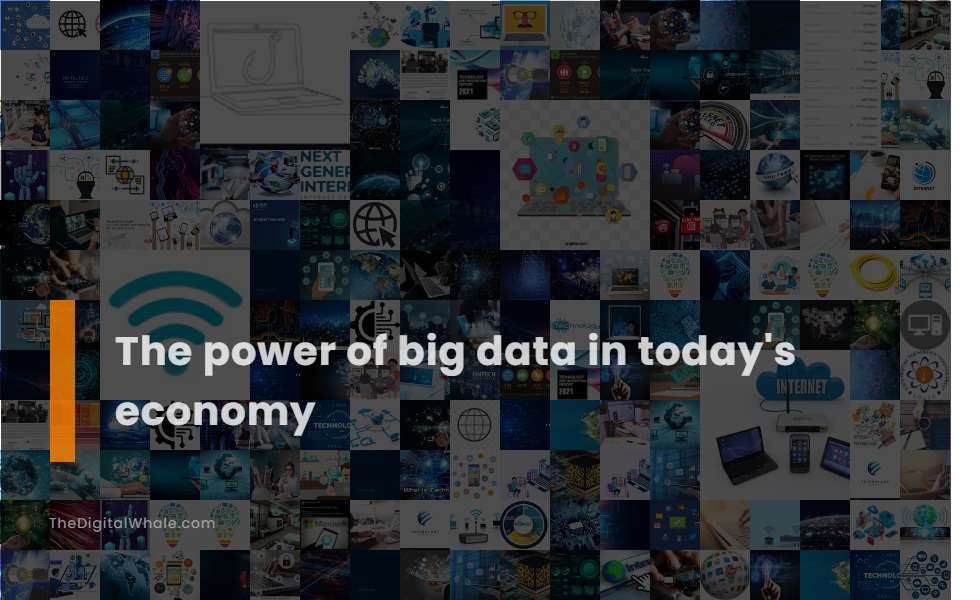The Power of Big Data In Today's Economy
What is big data and how can it be used to improve business performance? What is big data? What is its importance? Let's find out more about The Power of Big Data In Today's Economy.

Improved Operational Efficiency: Big data helps organizations optimize processes and reduce costs.
Big Data enhances operational efficiency by providing insights that identify poor-performing areas, bottlenecks, and inefficiencies in business processes, allowing organizations to eliminate waste, increase efficiency, and improve their bottom line through optimized logistics, inventory management, and predictive maintenance. To learn more about how the effective use of big data affects organizations' performance, you can explore detailed strategies and case studies at Crowe.
Enhanced Decision-Making: Analyzing big data enables better, data-driven decisions.
Big Data enhances decision-making by providing deeper insights, improving accuracy, and enabling more responsive and effective strategies through the use of advanced techniques like machine learning, artificial intelligence, and real-time analytics. These technological advancements help in predicting economic trends and tailoring policies to specific contexts. For more in-depth information, you can explore the study on the Impact of Big Data on Economic Forecasting and Policy Making, which delves into these transformative capabilities in detail.
Personalized Customer Service: Big data insights help tailor marketing and services to customer needs.
Big Data enables businesses to provide personalized customer service by creating detailed customer profiles, predicting future behaviors, and offering real-time support, thereby enhancing customer satisfaction, increasing sales, and building loyalty through tailored recommendations and proactive assistance. For more insights on how businesses are reshaping customer interactions using cutting-edge technologies, check out the role of Big Data in personalizing the customer experience on the Technorely website.
Increased Competitiveness: Companies using big data gain a competitive advantage over those that do not.
Companies using big data gain a competitive advantage by optimizing assets, making confident and speedy decisions, reducing costs, improving customer engagement, and identifying new revenue streams, thereby enhancing their operational efficiency, customer service, and market positioning. For more insights on how businesses leverage big data to thrive, visit the Big Data blog.
Healthcare Improvements: Big data aids in disease diagnosis, health care efficiency, and reducing health care expenditures.
Big Data in healthcare enhances disease diagnosis through predictive analytics and image analysis, improving healthcare efficiency by optimizing resource allocation and reducing hospital readmissions. By leveraging advanced data strategies, the healthcare industry can significantly reduce expenditures, potentially saving up to $450 billion annually. For more in-depth information on these transformative impacts, you can explore the role of big data in healthcare on the Tential website, illustrating how improved operational efficiency and clinical outcomes are reshaping patient care and research.
Related:
What is the best VPN service for remote work? How can I streamline my workflow and power up my productivity? Let's find out more about Using Technology To Streamline Your Workflow.
Economic Growth: Big data adoption is associated with more employment and lower unemployment rates.
Big Data adoption is associated with increased employment and lower unemployment rates, particularly benefiting women, youth, and older workers by converting temporary contracts into indefinite ones. This shift contributes to reducing unemployment levels among men under 25, men over 45, and women under 45. For further insights on how big data and data analytics impact employment, visit How Do Big Data & Data Analytics Affect at the University of Pennsylvania's Law School website.
Risk Management: Analyzing big data helps companies evaluate and mitigate risks more effectively.
Big data analytics significantly enhances risk management by enabling financial institutions to develop sophisticated predictive models, conduct real-time risk assessments, and identify potential threats from diverse data sources, including market trends, customer behavior, and economic indicators, thereby allowing for more proactive and precise risk mitigation strategies. This approach allows institutions to identify and detect threats in real-time, monitor transactional data for anomalies and fraudulent behaviors, and adjust investment strategies based on real-time market data and news sentiment. For more insights, the Role Of Big Data Analytics In Risk Management For Financial Institutions explains how these capabilities lead to more effective risk management and compliance with regulatory requirements.
Innovative Business Models: Big data enables the creation of new products, services, and business models.
Big Data enables companies to create new products and services, enhance existing ones, and invent entirely new business models, such as using data from product usage to improve future product development and creating location-based services like navigation and insurance pricing based on driving habits. To delve deeper into how data serves as the next frontier for innovation, explore the insights shared in the McKinsey Executive Summary.
Public Sector Efficiency: Big data can save billions in operational efficiency improvements in government administration.
Big data analytics in the public sector can save governments billions of dollars through operational efficiency improvements, reduced fraud, and enhanced tax collection. Estimates suggest savings of $20-41 billion annually and a potential reduction of 15 to 20 percent in administrative costs in the European Union. For more detailed insights, explore the report on Big Data Analytics provided by the World Bank. These advancements in data utilization are crucial for modernizing governmental operations and achieving cost-effectiveness across various departments.
Global Economic Impact: Big data drives significant changes and growth in the global economy.
Big Data is driving significant changes and growth in the global economy by enhancing operational efficiency, creating new business opportunities, and improving living standards. It facilitates better decision-making, innovates products and services, and aids in fighting corruption and responding to health and natural disasters. These contributions are pivotal to economic growth and development, as highlighted by the Austrian Center. By leveraging Big Data, industries can adapt swiftly to dynamic market demands, ensuring sustained progress and resilience in an ever-evolving global landscape.
Related:
What are the potential benefits of virtual reality in business? What will virtual reality change the way we view our jobs? Let's find out more about How Virtual Reality Is Changing Business and Job Opportunities.
